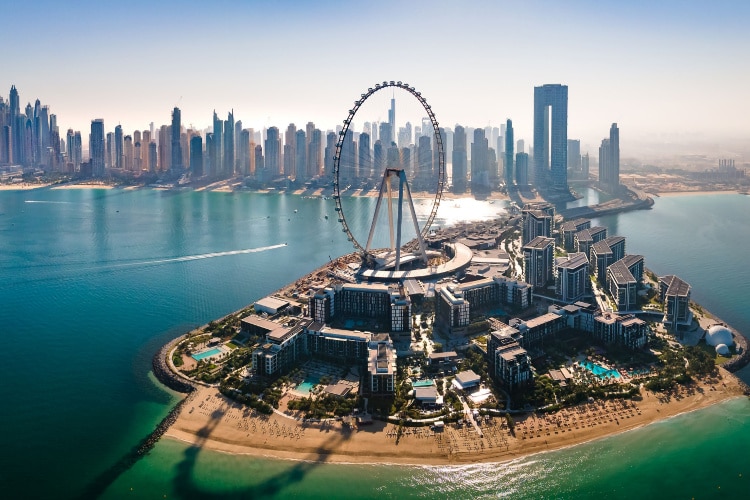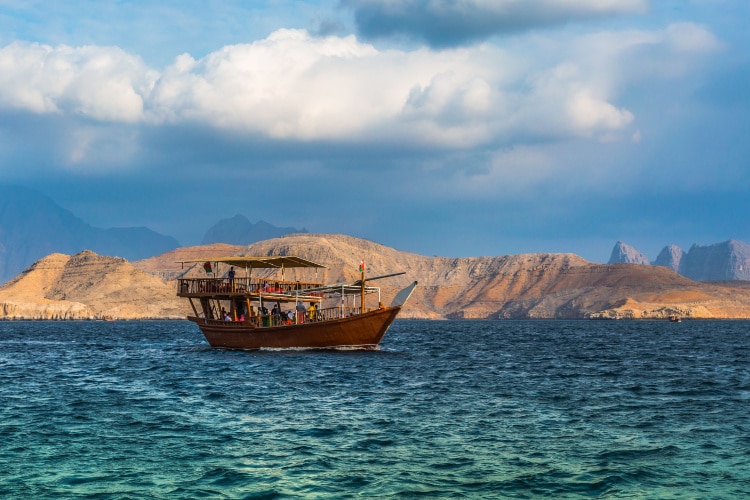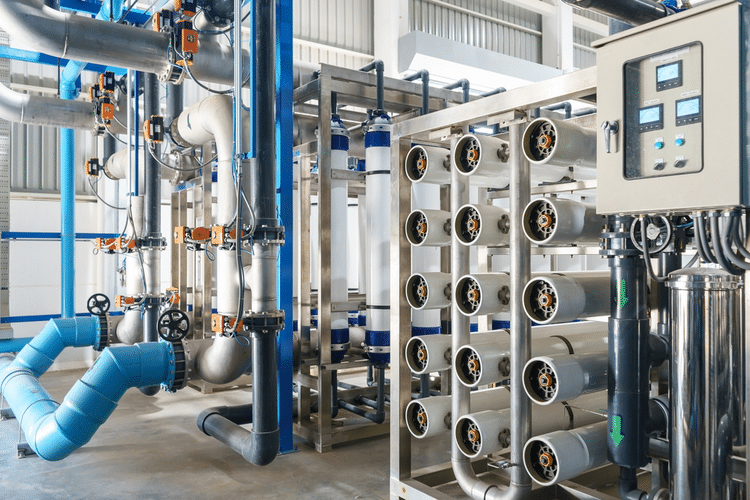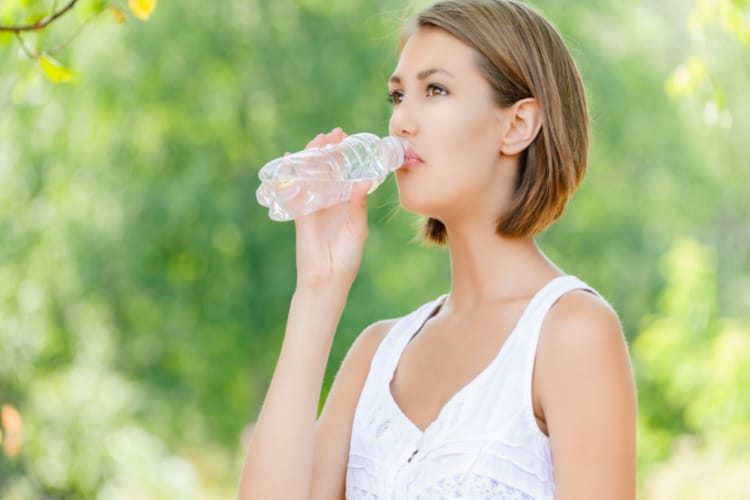Dubai is a popular tourist country with millions of visitors every year. With so much interest from tourists, it’s not uncommon for many to wonder if the tap water in Dubai is safe to drink or if they should seek alternative sources.
In this article, we’ll discuss:
- Source of Dubai’s tap water
- How tap water is treated in Dubai
- Is drinking bottled water the safest option in Dubai

Is Dubai Tap Water Safe to Drink?
Tap water in Dubai complies with UAE & WHO’S GSO 149 water standard. It is safe to drink.
United Arab Emirates’ GSO 149 lists the requirements for safe tap drinking water. It ensures the water has no microbes or pathogens, that it does not contain any substances that affect color, taste, odor, or appearance, and that it is free of foreign bodies visible to the naked eyes. GSO 149 also specifies the correct proportion of dissolved minerals in the water.
Is the Water in Dubai Hard or Soft?
The hardness or softness of water refers to how much dissolved mineral and chemical content is present. Hard water contains higher levels of dissolved calcium and magnesium, while soft water contains higher sodium levels. Both types of water are safe to drink.
The water in Dubai is hard. Water treatment facilities add minerals back into the water during desalination and purification.
Who Regulates Water in Dubai?
Dubai Electric and Water Authority (DEWA) is the primary agency responsible for water, cooking gas, and electricity in Dubai. Sheikh Maktoum bin Rashid Al Maktoum, the former vice president and prime minister of the UAE, founded the public service infrastructure company in 1992.
DEWA uses reverse osmosis to desalinate the seawater, uses chlorine to kill bacteria and pathogens, and then adds minerals like calcium and magnesium to harden the water.
The DEWA works with the Dubai Regulatory and Supervisory Bureau for Electricity and Water (RSB). The RSB is part of the Dubai Supreme Council of Energy. It inspects the water to ensure it is wholesome and clean and licenses participants in the water desalination market.
Where Dubai Gets Its Water from
Given the hot desert climate in Dubai, fresh water is in short supply. Dubai gets most of its drinking water from the nearby Arabian Gulf.
Desalinated seawater from the Arabian Gulf makes up nearly 99 percent of the city’s potable drinking water. The remaining 1 percent comes from groundwater.

How Dubai Treats Its Tap Water
Treatment facilities in Dubai treat Arabian Gulf seawater with a desalination process. The Dubai Aluminum Factory (DUBAL) pumps seawater from the Arabian Gulf into its facility and uses it to cool its aluminum smelters. The water then moves to the DEWA Jebel Ali Desalination Plant, the largest in the world.
The Jebel Ali Desalination Plant is a state-of-the-art facility that pumps 2.8 billion gallons of seawater from the Arabian Gulf daily, turning it into 30 million gallons of drinkable water. The water first passes through filters that remove large debris and occasional wildlife.
The facility uses reverse osmosis, where motorized pumps force the water through tubes to remove the salt.

The seawater continues along a multistep process where the machinery repeatedly boils and evaporates the water, moving it to the next chamber. The process creates two end products: pure, desalinated water and a thick salty brine.
The DEWA facility tests the desalinated water for pH, turbidity, and any residual chlorine they previously added to kill pathogens. The facility pumps the pristine water into city reservoirs and pipes for residential and commercial consumption, and they pump the salty brine back into the Arabian Gulf. In 2015, DEWA dumped 1.3 trillion gallons of brine into the Arabian Gulf.
Is Drinking Bottled Water the Safest Option in Dubai?
Bottled water is ubiquitous in Dubai. The average Dubai resident drinks 275 liters of bottled water per year. The United Arab Emirates’ packaged-drinking water market revenue was $625.4 million in 2021 and will likely increase to nearly $1 billion revenue by 2030.

The RSB monitors bottled water quality as closely as they monitor tap water quality, following GSO 149’s guidance. GSO 149 stipulates that the pH for bottled water must be between 6.5 and 8.5, and total dissolved solids must be between 100 and 1000ppm. Drinking bottled water, which often is filtered tap water, is very safe.
But is bottled water in Dubai safer than tap water? There is no clear-cut answer, except the RSB closely regulates both types of water, and both options are safe.
When tap water leaves the DEWA Jebel Ali Desalination Plant, it is safe, pathogen-free, and the correct composition of dissolved minerals. However, all tap water can develop problems once it reaches the vast pipe systems and storage tanks throughout cities.
The local municipalities are responsible for regularly cleaning the pipes and tanks to prevent the growth of bacteria. Additionally, iron from pipes and tanks can leach into the water after an extended period.
However, bottled water also presents health concerns. It can contain microplastics and BPA that leach into the water, possibly detrimental to health. They also cause a negative environmental impact because of the large amount of environmental waste.
While the safety between bottled and tap water is negligible, many residents and tourists in Dubai choose to drink bottled water for the taste. Some think bottled water tastes better than desalinated water, which can have a distinct taste.
It is important to remember that bottled water and tap water in Dubai often come from the same source (the Arabian Gulf) but the private water industry filters the water again and may add minerals and salts for an improved taste before bottling it.
Are Water Filters Necessary in Dubai?
Water filters are not necessary in Dubai because of the government’s close regulation of water quality. Tourists, in particular, might opt for bottled water if they are unsure about plain tap water.
Water filters might make sense for permanent residents of Dubai looking to cut back on plastic water bottle waste, or those who want the extra assurance that their pipes and water tanks did not contaminate the tap water.
Conclusion: Should I Drink the Tap Water in Dubai?
Tourists in Dubai should know that it is a modern, technologically advanced city and that it closely regulates its tap water supply to ensure safety. Multiple government and private agencies treat and inspect the water, adhering to GSO 149 and ensuring it complies with WHO standards.
Drinking tap water (in any country) is not without risks because of the possibility of pathogen growth and chemical leaching in the pipes and storage tanks.
Bottled water, despite the risks associated with plastic, is widely available in Dubai and a good alternative for those who remain unsure about tap water.
Dubai’s water is normally 100ppm-200ppm. That’s soft not hard.
Actually, exactly like you said, 100-200ppm is generally considered straddling the moderately hard (100ppm) to very hard (200ppm) range.